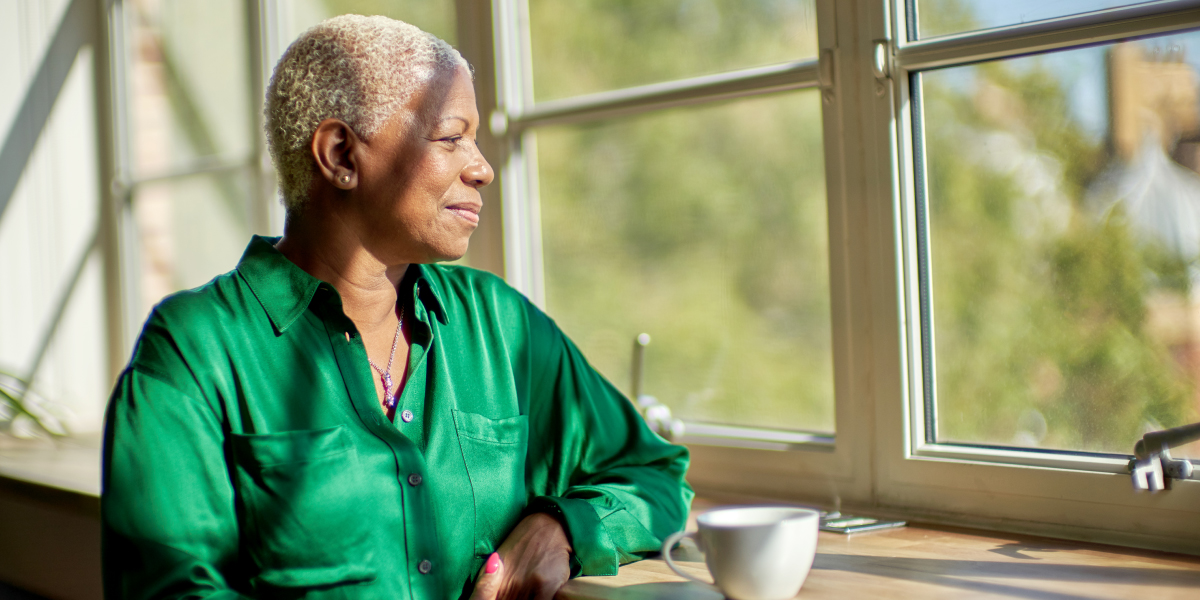
Make money make sense
Make every penny count with expert, impartial advice for just £49 a year – plus, get a £10 M&S voucher.
Join Which? MoneyJoin by midnight on 15 February 2026 and receive a £10 M&S gift card.
By clicking a retailer link you consent to third-party cookies that track your onward journey. This enables W? to receive an affiliate commission if you make a purchase, which supports our mission to be the UK's consumer champion.

There are a variety of benefits and discounts available once you reach a certain age.
Some are offered by the government, such as the state pension, help to meet the cost of energy bills and free or discounted travel.
Not all are paid automatically though, so it's important to check you're not missing out.
Other perks are available from private companies, from cheap cinema tickets to discounts on sporting season tickets.

Make every penny count with expert, impartial advice for just £49 a year – plus, get a £10 M&S voucher.
Join Which? MoneyJoin by midnight on 15 February 2026 and receive a £10 M&S gift card.
The state pension is paid once you reach the age of 66, rising to 67 between 2026 and 2028.
In 2025-26, the full level of new state pension is £230.25 a week.
The amount you're entitled to will depend largely on the number of the number of National Insurance contributions you've made during your working life.
Pension credit tops up the state pension for people who are on a low income. Guarantee credit tops your weekly income up to £227.10 in 2025-26 if you're single and your joint weekly income to £346.60 if you're in a couple.
Savings credit, which only applies to those who qualified for the state pension before 6 April 2016, provides £17.30 for a single person and £19.36 for a couple per week.
You can apply for pension credit by calling the Pension Service on 0800 991234.
If you've reached state pension age and are still in work, you'll no longer have to pay National Insurance on your earnings.
National Insurance is charged at 8% on income between £12,570 and £50,270 if you're an employee (6% if you're self-employed), and 2% above £50,270.
So if you're over state pension age and earning £30,000 a year, you'll save £1,394 in National Insurance in 2025-26.
National Insurance only applies to income from employment, not from pensions.

The specialists at Destination Retirement can help you plan with confidence.
Book a free chatWhich? earns a commission to fund its not-for-profit mission if you buy a product via this service
If you've reached state pension age and your savings are below £16,000, or you're on a low income or claiming certain benefits, you might be eligible for housing benefit.
This can help you pay some or all of your rent.
You can apply through your local council or as part of a pension credit claim.
This is worth £200 for eligible households, or £300 for eligible households with someone aged over 80.
The payments are made automatically in November or December to those eligible. You should receive a confirmation letter in October or November.
In 2025, all pensioners will receive the winter fuel payment, but it will be clawed back if your income is worth £35,000 or more, through a tax adjustment.
In Scotland, the equivalent benefit is called the Pension Age Winter Heating Payment.
These are £25 payments for each seven-day period of very cold weather between November and March.
Payments are automatic if the average temperature in your area is recorded as, or forecast to be, 0°C or below over seven consecutive days.
You'll be eligible for it if you claim any other income-related benefits, such as:
In Scotland, you may be eligible for a single payment called the winter heating payment instead. This is worth £59.75 and will be paid from December 2025.
The age at which you'll qualify for a free bus or travel pass varies across the UK.
In most parts of England, you qualify for a free bus pass – usually covering travel between 9.30am and 11pm – once you reach state pension age (currently 66).
Those living in Scotland, Wales, Northern Ireland, Merseyside and London can claim the travel concession at 60, with free rail, Tube and tram travel sometimes included.
The 60+ London Oyster photocard permits free travel on buses, tube, trams, trains and London Overground after 9am on weekdays (or anytime on weekends).
Local authorities and devolved governments can provide discretionary concessions before 66 from their own funds.
The Senior Railcard is available to travellers aged 60 or over.
It costs £35 a year (or £80 for three years) and gives you a third off standard and first class anytime, off-peak and advance fares.
Some travel operators offer discounts for older people.
For example, National Express has a Senior Coachcard, which costs £15 (plus £3 postage and packing) for 12 months travel and offers a third off your travel. You need to be 60 to apply.
If you live in London, the London Taxicard scheme provides subsidised transport for people with serious mobility problems who find it difficult to use public transport. It's funded by the London boroughs and TfL and managed by London Councils on their behalf.
To apply for the scheme, you must fill in an application form for the London borough in which you live.
Visit the application page on the London Council's website. There is also information about the number of trips you're eligible for each year and the maximum fare you should pay.
PIP is a benefit worth up to £187.45 a week (£110.40 for the care component and £77.05 for the mobility component) to help with living costs if you have a disability or long-term physical or mental health condition.
PIP is available even if you're working or have savings.
If you've reached state pension age (66) and haven't claimed PIP before you won't be eligible - you'll need to apply for attendance allowance instead.
Attendance allowance is worth either £73.90 or £110.40 a week, depending on the level of care you need because of your disability or health condition.
If you live in Scotland, you'll need to apply for Pension Age Disability Payment instead of attendance allowance. It's paid at the same rates.
If you spend at least 35 hours a week caring for someone who is receiving a qualifying disability benefit, you may be eligible for carer's allowance. This is worth £83.30 a week.
Once you reach 60, you can get free prescriptions in England. Prescriptions are free for everyone elsewhere in the UK.
You can also get free NHS-funded eye tests from the age of 60 (in Scotland, eye tests are free for all ages).
You'll be entitled to free NHS dental treatment if you're receiving pension guarantee credit.
Over-60s can get 20% off glasses and lenses from Specsavers' £70 range or above, including designer options.
Boots Opticians offer people aged 60 or over who have an Advantage Card and are part of the Over 60s Rewards scheme 10% off glasses or prescription sunglasses.
Most museums offer concessions for senior citizens, while English Heritage and National Trust both offer reduced memberships.
Odeon holds weekly screenings for those aged 60+ with seats starting from £3.50 if you're an Odeon member booking online. The price includes tea, coffee and biscuits before the film.
Picturehouse also offers discounted tickets and free tea or coffee for over-60s, but different prices apply depending where your local cinema is.
Older sports fans - typically those aged 65 and over - can get discounted matchday and season tickets for football, cricket and rugby games.